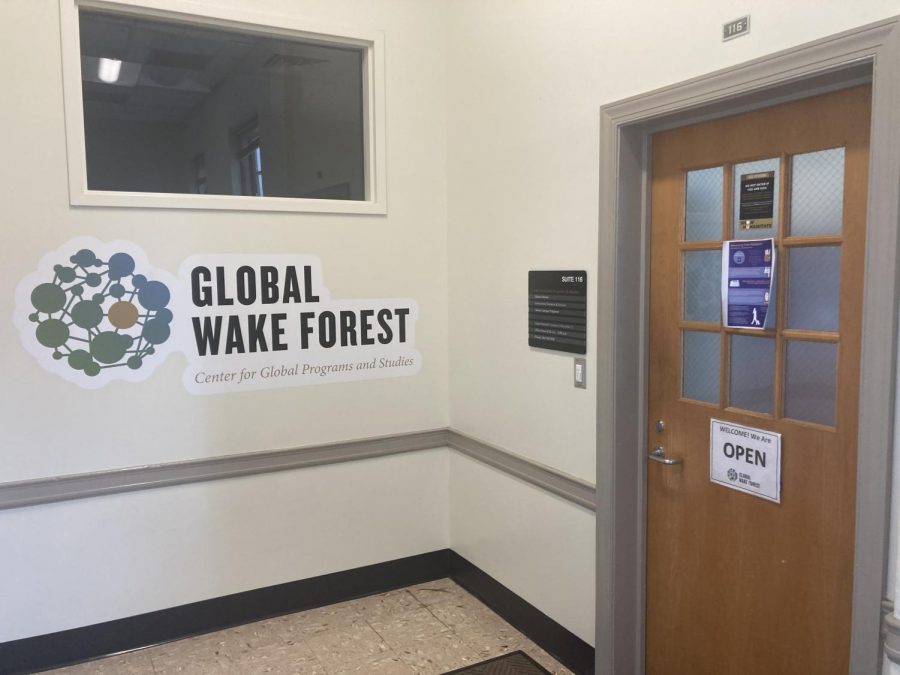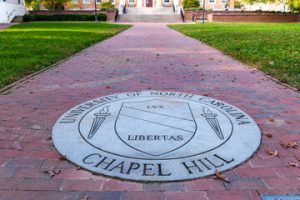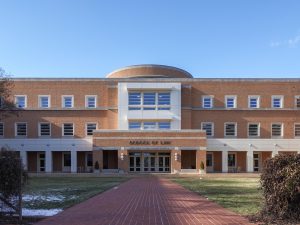Int’l students adjust to being on campus
Many students returned to campus after a year of learning from their home countries
Wake Forest’s Center for Global Programs and Studies has been working with students navigating the transition back to the U.S.
September 30, 2021
Jessica Cao, a junior from Shaanxi, China, arrived at the airport four hours before the flight’s departure time in Shanghai, only to see a long line in front of her. Ninety percent of the line consisted of international students with huge, overstuffed suitcases trying to go to their college campuses.
She waited two hours before it was her turn to check in. After 20 hours with almost no food and nothing to drink, she arrived in the United States.
It was a typical coming-back-to-campus trip for an international student.
“It was so hard,” Cao said. “But it’s worth it.”
As Wake Forest decided to start the Fall 2021 semester on Aug. 23, “with the assumption that improving public health conditions will enable a full offering of in-person classes on the Reynolda Campus,” many international students who had been remote studying in their home countries for almost a whole academic year were expected to come back to the United States and take classes on campus.
Wake Forest decided to start the Fall 2021 semester on Aug. 23, “with the assumption that improving public health conditions will enable a full offering of in-person classes on the Reynolda Campus.” This meant that many international students who had been studying online in their home countries for almost an entire academic year were expected to return to the United States and take classes on campus.
Per Axios, the Bureau of Consular Affairs for the U.S. Department of State announced in April that international students from countries that had travel bans due to COVID-19 would be allowed to enter the United States under the National Interest Exception, so long as they had proper visas, negative COVID-19 tests within three days of travel, and academic programs beginning on Aug. 1 or later.
When Wake Forest finalized the decision to return to a full slate of in-person offerings, most international students were happy and excited about coming back on campus. Some, however, harbored more ambivalent feelings.
“On one hand, I’m very excited to go back to campus, and I really miss school life,” Steven Chen, a senior who spent his whole junior year in China, said. “On the other hand, I’m very concerned about COVID-19, because there are going to be a lot of people and interactions.”
Marina Velasco, a sophomore from Lima, Peru, echoed this sentiment. “I was happy, but I was worried because I know that some people don’t really care much about COVID-19 anymore,” she said. “I do take it seriously, and I don’t want to get infected because of other people thinking everything is back to normal, we can do whatever we want.”
At the administrative level, International Student and Scholar Services (ISSS) has been working hard the whole summer trying to answer the inquiries regarding health care, online enrollment, other options for students unable to return to campus and directing students to other departments when the questions were out of their field.
“We are happy that so many international students were able to enter the U.S.” ISSS said, “and we are looking forward to meeting and helping this population enjoy their time at Wake Forest.”
Aside from concerns about physical safety and health, leaving home again after a year has produced some homesickness and needs to readjust to independence. For example, Elena Yang, a senior from Buenos Aires, Argentina, said her biggest concern regarding coming back was that she had to do laundry and other chores by herself again.
“I kind of have to do everything on my own. I have to take care of myself,” she said. Before Yang left home, she asked her mother how to be independent.
Many international students chose to go back to their home countries in the spring of 2020 and take online courses for a whole academic year during the pandemic, which meant living with their parent’s as a college student.
“The pandemic caused a huge disruption for everyone,” Wake Forest Psychology Professor Christy Buchanan said.
From a student’s view, “you go home after being at college where you live independently, and then you have to go back to live under your parents roof and now you’re a child again. That can be awkward,” Buchanan said.
However, after spending a year at home, when it is time to leave for college, the feeling of “happy but lost” hit both parents and children.
“People are going through again what is normal to go through once,” she said.
Some students who chose to stay in their home countries just took a gap year.
Carol Chen, a junior from Jiangsu, China, is taking a gap year because the “Go Local” program in Shanghai, China is canceled due to COVID-19. Chen is now looking for internship opportunities in China.
Chen came to terms with the cancellation of the program fairly quickly, however, and she is looking forward to what is to come this year.
”If you stop for like a semester or two, it can really help you think about what you want to do in the future,” Chen said. “Having some hands-on experience, I can know why I’m learning all those knowledge from college instead of just memorizing it.”
Given the circumstances, it is all about making choices, and there is no definitively right answer.
“Life is full of transitions that we have to get used to, and the pandemic created more of those,” Professor Buchanan said.














